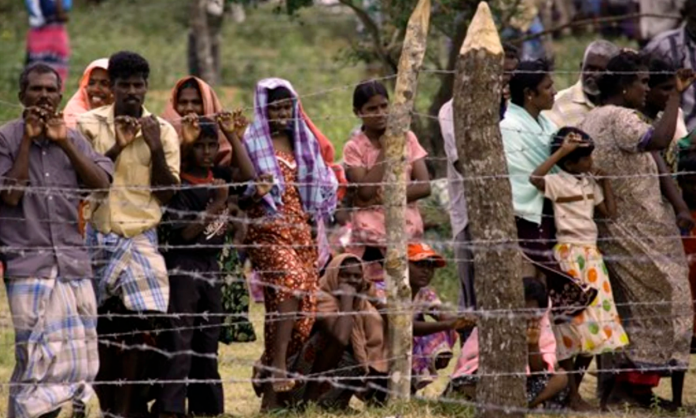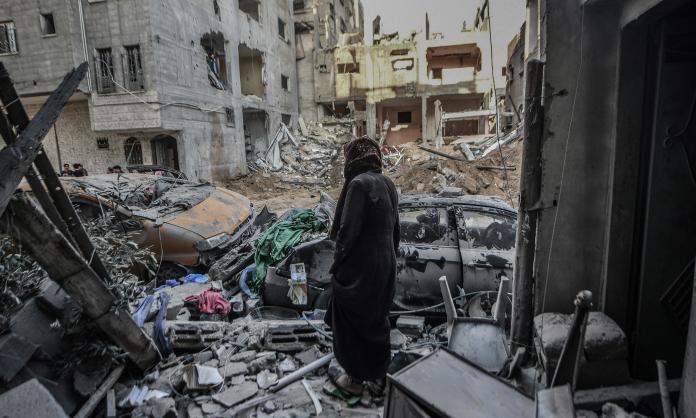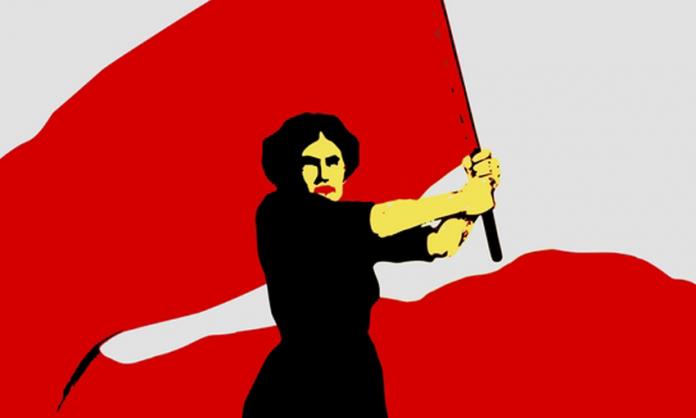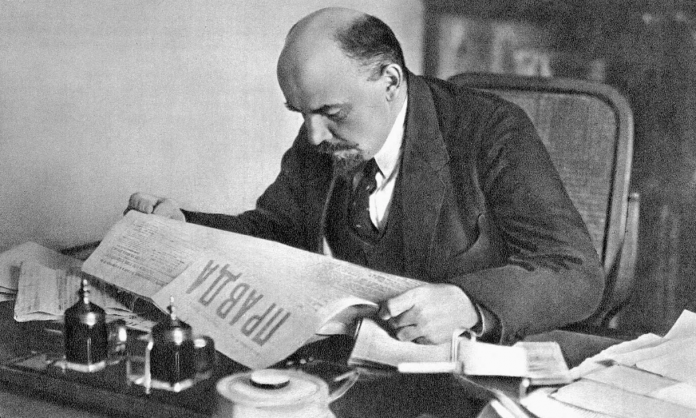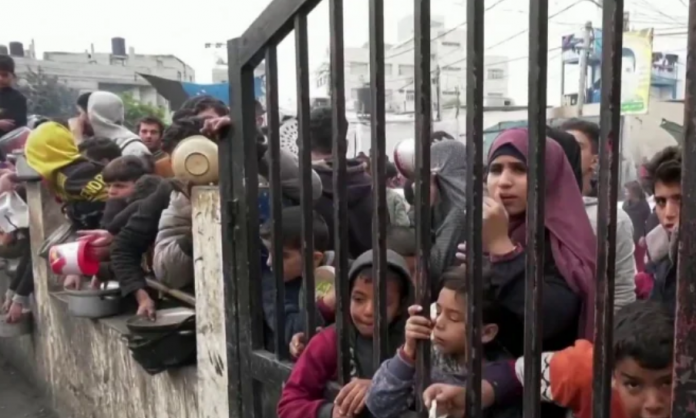A distancing effect is a technique used in theatre or cinema – pioneered by German socialist playwright Bertolt Brecht – to jolt audiences out of their absorption in the narrative and encourage them to reflect critically on the story unfolding before them. Enforced social distancing is having the same effect with our absorption in the “narrative” of everyday life.
“A vastly re-imagined society post-pandemic is not only desirable but necessary”, Paul R. Carr, an academic, argued on the Conversation web page on 14 May. “That could mean a re-imagined human civilization that no longer prioritizes militarization, conflict, concentrated wealth in the hands of the few, massive social inequalities, environmental catastrophe, delusions of empire and colonization and fictitious notions of democratic freedom, engagement and participation.”
Other commentators have followed suit. A typical example is the set of five principles for a policy response to COVID-19 produced by the Sydney Policy Lab, a think tank. Among them is building a sustainable future. “This means building programs of social and economic renewal that can overcome the immediate negative impact of the virus and at the same time turn attention to tackling some of the chronic challenges that were already besetting us as a nation before the virus hit.” Policies for economic recovery, they argue, “should place the challenges of both climate change and systemic inequalities at their heart ... We encourage all policymakers to use this moment as an opportunity to set a better course for the future”.
Commentators calling for us to “build back better” are right. Going to the gym or having a pint with friends at your local pub is one thing. But no one in their right mind would want to see the world return to the kind of “normal” that existed before the crisis hit.
Australia is still recovering from a summer of catastrophic bushfires. Do we want to go back to families huddled together on beaches and in boats watching a wall of flames devour their homes? Do we want to go back to a neoliberal economic model that has resulted in obscene wealth inequality? To low pay, insecure work, a lack of adequate health care, education and housing? Do we want to return to racism and brutality towards Indigenous people, migrants and refugees? Or to the rise of fascist movements around the world? Of course not.
Even before the crisis hit, many people saw the need for radical change. Last year was one of revolts – from Sudan to Chile, Hong Kong to France and many places in between. In country after country, protests and strikes occurred on a scale not seen in decades. The neoliberal order was already fraying at the seams. New, radical movements, breaking with the cautious, respectable approach of mainstream activism over the past few decades, were emerging everywhere – from Extinction Rebellion, to the women’s movements of Latin America, to the militant blockade of a proposed new oil pipeline by the Wet’suwet’en people in Canada.
The problem with much of the kind of commentary mentioned above, though, is that it does nothing beyond just “calling for” or “encouraging” political leaders to change course. This assumes that we’re all more or less on the same page. But while we might all agree that the current crisis will be a turning point of some kind, which direction we go from here is up for grabs. No matter how much sense it makes from a human or scientific standpoint, there’s no guarantee that we will turn towards something better than we had before. All indications are, in fact, that governments are looking to use the crisis to double down on the most destructive, and most hated, aspects of the neoliberal model of the past few decades.
The Australian government has already outlined the key elements of its vision for a post-pandemic “recovery”. First order of business will be the ending of stimulus measures, such as the $550 a fortnight boost to dole payments and free child care, that have cushioned the impact of the crisis for many. Next is the further expansion of Australia’s already bloated fossil fuel economy, tax cuts for big business and another round of attacks on workers and unions (euphemistically referred to as “industrial relations reform”). All this has been dressed up, of course, as a plan for job creation. But as has been the case for the entire neoliberal period, it translates in practice to more support and rights for big business at the expense of the rights, pay and conditions of workers.
The government won’t be convinced to shelve these plans by the arguments of progressive commentators, mainly because their big capitalist bosses wouldn’t approve. And at present there’s little political pressure even to pretend to be less reactionary. Scott Morrison is the most popular prime minister in more than a decade. At the beginning of the year, during the bushfire catastrophe, his approval fell to 37 percent, and it became a running joke that nobody wanted to be seen with him or shake his hand. Today, according to the latest Newspoll, his approval rating is up to 68 percent. He is preferred prime minister among 53 percent of voters, and even 29 percent of Labor voters prefer him to wet sock “opposition” leader Anthony Albanese.
His newfound popularity can largely be explained by the Labor Party, the trade union leaders and media not challenging his presentation of himself as a “national unity” leader during the crisis. At every stage, they have been more concerned with presenting themselves as responsible partners with the government than with holding it to account or, heaven forbid, fighting for the interests of workers and the poor.
The unions have been perhaps the worst offenders. On 26 May, the Australian Financial Review published a joint interview with industrial relations minister Christian Porter and ACTU leader Sally McManus, describing them as “new best friends in the crisis”. It’s doubtful whether either of them truly believes their own bullshit about being “best friends forever”, but the effect is the same – to create an appearance of unity at a time when workers in many industries are already facing savage attacks by the bosses. Behind the scenes, Porter must be rubbing his hands with glee.
There’s no evidence that Morrison or the government he leads have had any fundamental change of heart about the world view that’s guided them up to this point. They remain a government of and for big business: one that, no matter what the circumstances, will value corporate profits ahead of working class living standards, the environment or anything else. It’s the government that only months ago was willing to watch vast areas of the country burn, and hundreds of thousands of people protest in the streets, without once indicating a preparedness to lead a shift away from fossil fuels.
We can’t allow ourselves to be lulled to sleep by the idea that we’re somehow all in this together. The government certainly won’t waste the opportunity with which the crisis and the hopelessness of the opposition have presented it. It’s true, in one sense, that it wants to “build back better”. It wants to build a post-crisis economy and society that’s better for the super-rich minority – the bankers, real estate developers, mining magnates, media moguls and all the others who have been the main beneficiaries of neoliberalism.
For the rest of us, things will be worse than they were before. The mountain of debt the government has built up in the name of defending the economy from the worst impacts of the COVID-19 crisis will have to be paid back somehow. And if, as the government has indicated, there’s no chance of increased taxes on big business and the rich, it will be workers who pick up the tab. The world will be one of lower wages, more insecure work and fewer rights. And it will be one in which the social, environmental and other major crises we were facing before the pandemic will only further intensify.
None of this can be wished away with rosy visions of the kind of society we could build if only our rulers listened to the advice of scientists and others concerned with the state of the world. If anything, the COVID-19 crisis has provided yet another illustration of how little our rulers care for science when it conflicts with the imperative of profit. In January and February, as the virus spread rapidly around the world and scientists warned of the need to prepare urgently for a possible global pandemic, politicians and business leaders played down the threat. With few exceptions, no serious action was taken until it was too late. In many countries, it was only a combination of overflowing emergency rooms and direct action by workers that finally forced governments to act.
Today, we’re seeing the same lack of concern for human life manifest itself in a cavalier attitude to “opening up”. Globally, the number of infections is increasing by more than 100,000 a day. In large underdeveloped countries such as India, Pakistan, Brazil and Indonesia, the infection and death rates are rising. Scientists have been clear that any rush to reopen in places where the virus continues to spread will risk hundreds of thousands, if not millions, more deaths. And yet, again, these warnings are largely falling on deaf ears.
What hope is there that the rulers of capitalism will be prepared to sacrifice short-term profits in the name of building a better world for future generations, when they’re not prepared even to sacrifice profits to save the lives of people living today?
Our only hope, if we want to avoid being reabsorbed back into the nightmare narrative of a capitalist system stumbling from one devastating crisis to the next, is to rebel. As Brecht himself famously put it, “If you fight you might lose, if you don’t you have already lost”.






